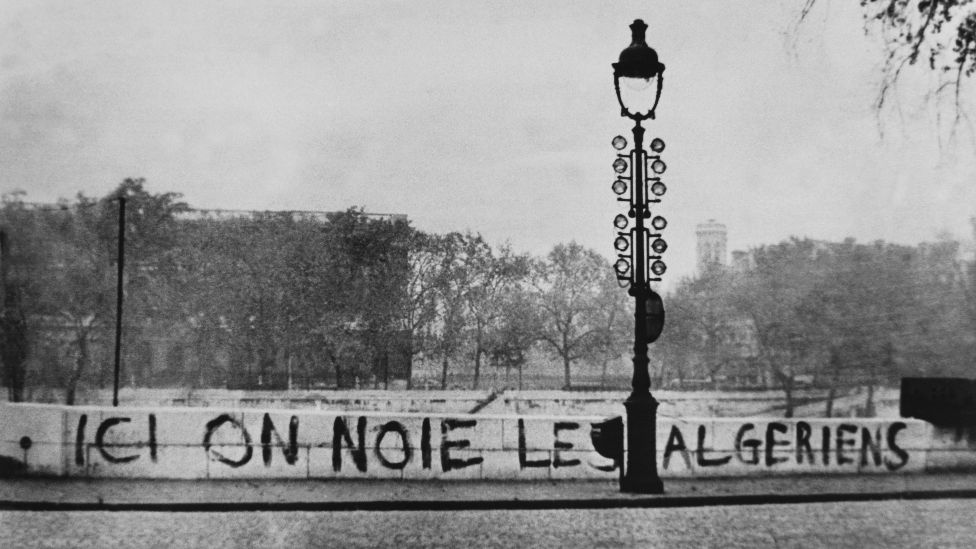
"HERE WE DROWN ALGERIANS"
60 years ago around 30,000 Algerians had taken to the streets of Paris in a peaceful protest against a curfew, and calling for independence nearly seven years into the war against French rule in North Africa. In 1961, tensions were running high and on 5 October the Parisian authorities banned all Algerians from leaving their homes between 20:00 and 05:30. The march was called in protest at the curfew
The police killed hundreds of protesters and dozens of others were thrown into the River Seine. It is now believed that between 200 and 300 Algerians were killed that day. A total of 110 bodies washed up on the banks of the River Seine over the following days and weeks . Some were killed then dumped, while others were injured, thrown into the cold waters and left to drown.
The youngest victim was Fatima Beda. She was 15.
14,000 Algerians arrested during the operation. Thousands were illegally deported to Algeria where they were detained in internment camps despite being French citizens.
The campaign waged against Algerians in Paris was unofficially called the "ratonnade", meaning "rat-hunting".
The French government of the day censored the news, destroyed many of the archives and prevented journalists from investigating the story. Contemporary news bulletins reported three deaths, which included a French national. It was not covered in the international press. French left-wing parties, who were in opposition at the time, have also come in for criticism for not condemning the massacre. They have been seen as complicit in the cover-up.
The racist nature of the operation cannot be ignored - every person who looked Algerian was targeted. Moroccans had to put up the sign "Moroccan" on their doors to avoid being harassed by repeated police raids. Portuguese, Spanish and Italian immigrant workers with curly hair and dark complexions complained about systematic stop and searches as they were mistaken for Algerians by the police.
The Paris police chief at the time, Maurice Papon, had a notorious reputation. He had served in Constantine in eastern Algeria where he supervised the repression and torture of Algerian political prisoners in 1956. He was later convicted in French courts of overseeing the deportation of 1,600 Jews to Nazi concentration camps in Germany during World War Two when he was a senior security official under the Vichy government.
No-one was tried as the massacre was subject to the general amnesty granted for crimes committed during the Algerian War.

No comments:
Post a Comment